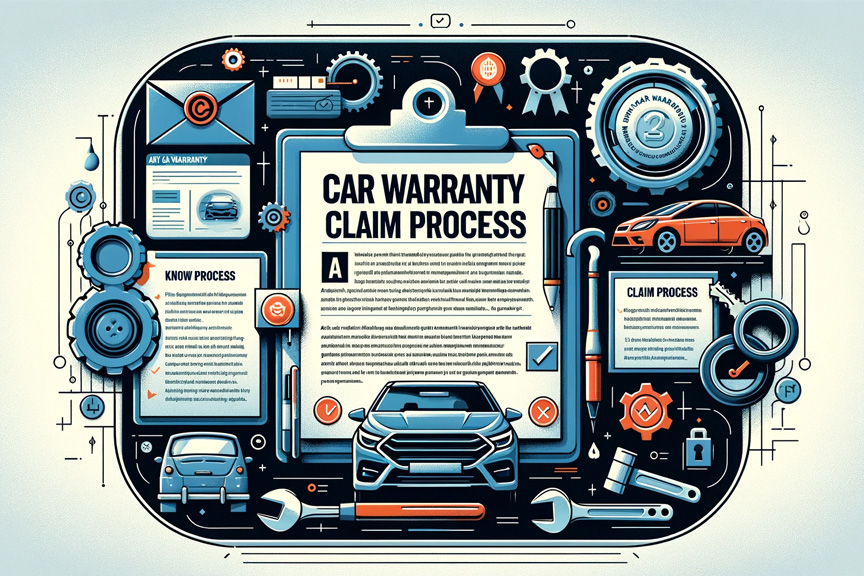
Introduction:
When it comes to protecting your investment in a vehicle, choosing the right auto car warranty is a crucial decision. The options can be overwhelming, but two primary choices stand out: full car coverage and limited warranty. In this guide, we’ll explore the differences between these two options and help you determine which one is the best fit for your needs.
Understanding Car Warranties
Before delving into the specifics of full car coverage and limited warranties, let’s clarify what car warranties are and why they matter. A car warranty is essentially a contract between you and the manufacturer or an extended warranty provider. It outlines the terms and conditions under which certain repairs and maintenance services will be covered during a specified period.
Warranties are designed to provide peace of mind to car owners by offering financial protection against unexpected mechanical failures. They can significantly reduce the out-of-pocket costs associated with repairs and help keep your vehicle running smoothly.
Full Car Coverage (Bumper-to-Bumper)
Full car coverage, often referred to as bumper to bumper coverage, is the most comprehensive type of auto car warranty you can get. It typically covers almost all components of your vehicle, excluding only a few specific items like tires, routine maintenance, and wear-and-tear items (e.g., brake pads and wiper blades). Here’s what you need to know about full car coverage:
Extensive Protection: With full car coverage, you enjoy comprehensive protection for your vehicle’s major systems and components. This includes the engine, transmission, electrical systems, and more. If any covered part malfunctions, the warranty will typically cover the repair or replacement costs.
Peace of Mind: Full car coverage provides the ultimate peace of mind since it leaves very little room for surprises. You can drive with confidence, knowing that you’re financially protected against most unexpected repairs.
Higher Cost: While full car coverage offers extensive protection, it often comes with a higher upfront cost compared to limited warranties. However, this investment can pay off in the long run by reducing repair expenses.
Term Length: Full car coverage warranties are available for various term lengths, typically ranging from three to seven years. Be sure to choose a term that aligns with how long you plan to keep your vehicle.
Limited Warranty
A limited warranty, also known as a powertrain warranty, provides coverage for specific parts of your vehicle’s powertrain. This includes the engine, transmission, and drivetrain components. Here are the key points to consider about limited warranties:
Focused Protection: Limited warranties offer protection for the essential and costly parts of your vehicle. Since they cover a narrower range of components compared to full car coverage, they are often more budget-friendly.
Lower Cost: Limited warranties typically come at a lower upfront cost compared to full car coverage. This can make them an attractive option for budget-conscious consumers.
Shorter Terms: Limited warranties usually have shorter terms, often ranging from three to five years. Keep in mind that they may expire while you still own the vehicle, leaving you responsible for any repairs.
Consider Your Driving Habits: If you drive relatively low mileage and plan to trade in or sell your vehicle within a few years, a limited warranty might suffice. However, if you intend to keep your car for an extended period, you may want more comprehensive coverage.
Which Option Is Right for You?
Choosing between full car coverage and a limited warranty ultimately depends on your specific circumstances and preferences. Here are some factors to consider when making your decision:
Budget: If you have a limited budget for an extended warranty, a limited warranty might be the more affordable option upfront.
Long-Term Plans: Think about how long you plan to keep your vehicle. If you intend to drive it for many years, full car coverage can offer greater long-term protection.
Driving Habits: Consider your mileage and driving habits. If you drive frequently or put a lot of wear on your vehicle, full car coverage might be a better fit.
Warranty Provider: Research different warranty providers and compare their terms, reputation, and customer reviews. Choose a reputable provider with a history of excellent customer service.
Additional Coverage: Some consumers prefer the peace of mind that comes with full car coverage, knowing that almost everything is covered. If you value this comprehensive protection, it might be worth the extra investment.
Customization: Some providers offer customizable warranty plans that allow you to tailor coverage to your specific needs. Explore these options if you want a more personalized warranty.
Conclusion
In the end, the choice between full car coverage and a limited warranty depends on your individual circumstances, budget, and preferences. Both options can provide valuable protection for your vehicle, but the extent of coverage and cost differ significantly.
If you prioritize comprehensive protection and plan to keep your car for an extended period, full car coverage might be the right choice for you. On the other hand, if you’re on a tighter budget and have a shorter-term outlook, a limited warranty can still offer valuable coverage for your vehicle’s essential components.
Regardless of your decision, remember to thoroughly research warranty providers, read the terms and conditions carefully, and ask any questions you may have before committing to an auto car warranty. Making an informed choice now can save you time, money, and stress down the road.
In summary, whether you opt for full car coverage or a limited warranty, investing in an auto car warranty is a smart decision to safeguard your automotive investment and ensure peace of mind on the road.

